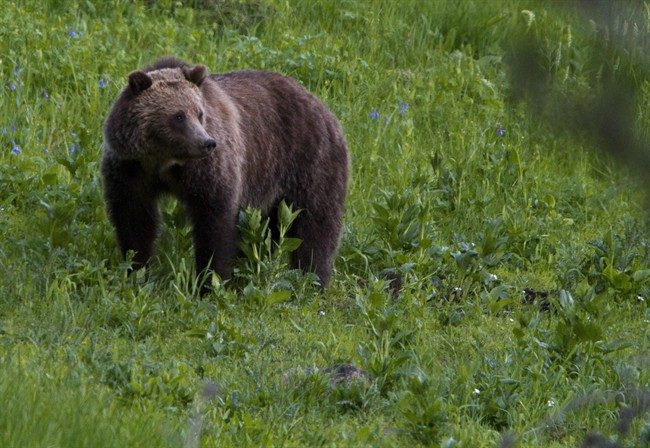As the debate around trophy hunting in British Columbia continues, a new poll suggests more British Columbians are opposed to it.

In a new online survey conducted by Insights West, 91 per cent of British Columbians said they opposed hunting animals for sport.
The trophy hunting of grizzly bears in particular has been a hot topic this year, with a number of wildlife organizations around the province calling for a complete ban.
According to government numbers, the current population of grizzly bears in B.C. is estimated at about 15,000 and Premier Christy Clark insists the population is very healthy.
“It’s all scientifically managed. It’s very, very carefully done,” the premier said when questioned by reporters about her stance on the issue on Monday. “There’s absolutely no threat to the population of bears and the hunt supports a lot of family-run businesses all across the province in very, very small communities.
But how much money does grizzly bear hunting really bring to B.C.’s economy?
The province told Global News a grizzly bear hunting licence costs $80 for residents. Non-residents must pay $1,030 and must employ a licenced guide outfitter.
Grizzly bear hunting licences alone bring $347,000 to the economy annually ($104,000 resident/$243,000 non-resident).
However, it is the hunting trips that generate most revenue.
The ministry says the grizzly bear hunt generates the most revenue per trip, at $1,331 or $420 per day, with more than 3,600 grizzly hunting trips made in 2012-2013, the latest season for which statistics are available.
Overall, it is estimated resident grizzly bear hunters bring in $4.8 million.
A quick Google search shows a number of options for guided grizzly bear hunts in B.C. with the base rate ranging from $13,000 to $15,000, excluding taxes, royalties, tags and trophy fees.
The province has not done a detailed expenditure survey for guided hunts.
“We have seen estimates ranging from $13,000 to $27,000 per hunt,” says Greig Bethel with the Ministry of Forests, Lands and Natural Resource Operations.
Last season, 102 of the 267 grizzly bears killed were hunted by non-residents, which would generate an additional revenue estimated to be between $1.32 and $2.75 million in economic activity, says Bethel.
Based on this, the overall estimated total for grizzly hunting in B.C. would be between $6.12 million to $7.55 million.
In 2014, Center for Responsible Travel released a report comparing the economic value of bear viewing and trophy hunting for both grizzly and black bears in the Central and North Coast of British Columbia.
The report concluded that bear viewing in the Great Bear Rainforest generates far more value to the economy, both in terms of total visitor expenditures and GDP and provides greater employment opportunities and returns to government than does bear hunting.
It says, in 2012, bear-viewing companies in the Great Bear Rainforest generated more than 12 times more in visitor spending than bear hunting. It argues bear viewing is attracting many more visitors to the Great Bear Rainforest than is bear hunting.
Spirit Bear Lodge owned by Kitasoo/Xai’xais First Nation is one of the many businesses invested in bear viewing.
It sits smack in the middle of the Great Bear Rainforest south of Prince Report and has been offering grizzly bear viewing tours since 2006.
General manager Tim McGrady says they get hundreds of tourists a year from U.S., Canada, the UK and Australia and business has been picking up.
“We have seen double-digit growth every single year in the last five years,” says McGrady.
In his mind, there is no question that bear viewing generates a larger profit with people not only shelling out as much as $1,000 a night on bear-viewing packages, but also leaving their tourist dollars in remote B.C. communities, purchasing local arts and crafts.
While the B.C. government argues bear hunting and bear viewing are not mutually exclusive economic activities and have existed concurrently for many years, McGrady says the lack of willingness from Christy Clark’s government to impose a ban on trophy hunting in B.C. has been incredibly frustrating for business operations like his.
“This is a really remote part of British Columbia with very few economic opportunities,” he says. “Here is a First Nations community that has built up a world-class business and we are not getting any help from the government to protect our key asset, which is the grizzly bear.
We are going out into these remote areas to view bears that are now, as we speak, open to trophy hunting. It is a real kick in the teeth for these First Nations communities who are relying on the grizzly bears for this burgeoning economic opportunity.”


Comments